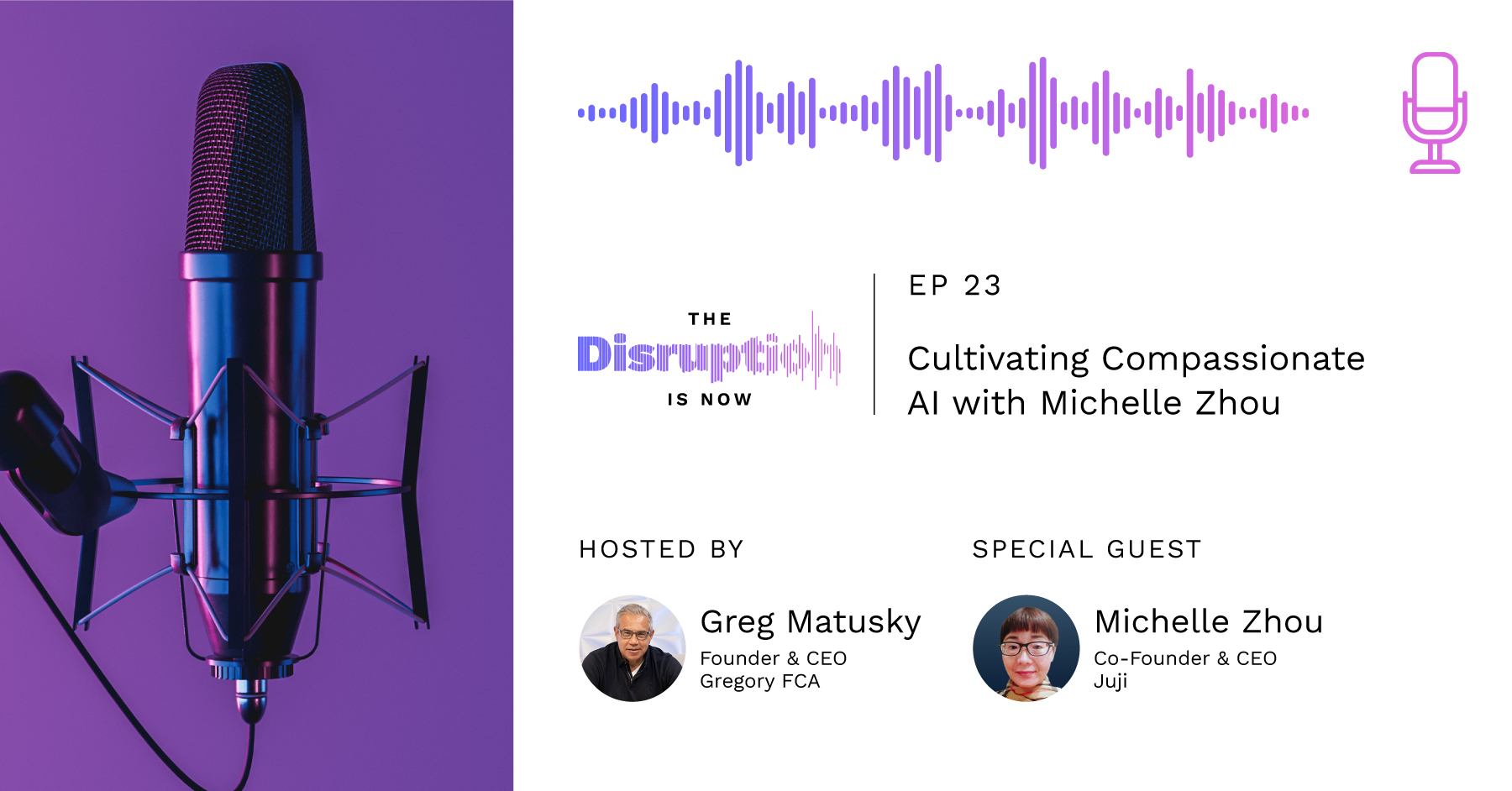The future of AI is human-centered, with generative AI models trained for active listening and reading between the lines of a conversation.
That’s what Michelle Zhou, Co-Founder and CEO of Juji, is building. With a Ph.D. from Columbia, more than 100 scientific papers to her name, and a stint in the Watson division of IBM, she uniquely understands many of the limits in current LLMs that we need to overcome.
She joins Greg Matusky on The Disruption Is Now to dive deep on how to teach AI human skills that take conversations to a more empathetic level. That kind of cognitive intelligence creates a more helpful AI partner that better understands your needs in a variety of situations, from education to counseling.
Watch now:
Human-centered AI better understands you
Michelle explains that human-centered AI starts by truly understanding individuals’ motivations, goals, passions, and interests. It models this human behavior so that AI systems can better understand the humans they’re communicating with and better fulfill their needs.
This enables AI to better empower each person to discover, pursue, and maximize their talents and potential, for example.
Active listening allows for more proactive AI
Rather than passively listening and responding like current LLMs, AI that actively listens can be much more helpful and useful. It can read between the lines of what the human is saying and more proactively ask follow-up questions, show empathy, and propose tailored next steps based on the individual’s specific situation and concerns.
Michelle gives an example of an education AI understanding a prospective student’s cost concerns about college, and instead of simply repeating back the problem to show comprehension, the AI proactively walks through financial aid options best suited for the student’s circumstances.
AI can show compassion without the emotional burden
AI has the ability to make a person feel understood without actually feeling the emotions itself. This separates AI from humans, which can feel overburdened by empathy after carrying the weight of another person’s emotions. For example, counselors are susceptible to burnout from the emotional toll of empathizing with their patients. AI would have no such limitations.
Key takeaways:
● Defining human-centered AI (1:48)
● The multidisciplinary nature of AI (4:23)
● Reading between the lines with cognitive AI (7:15)
● Active vs passive listening in AI models (9:53)
● What active listening in AI looks like (12:36)
● Do we need to cap AI? (24:09)
● Where AI characteristics are superior to humans’ (26:14)
● How machines can show empathy without having emotions (27:59)


